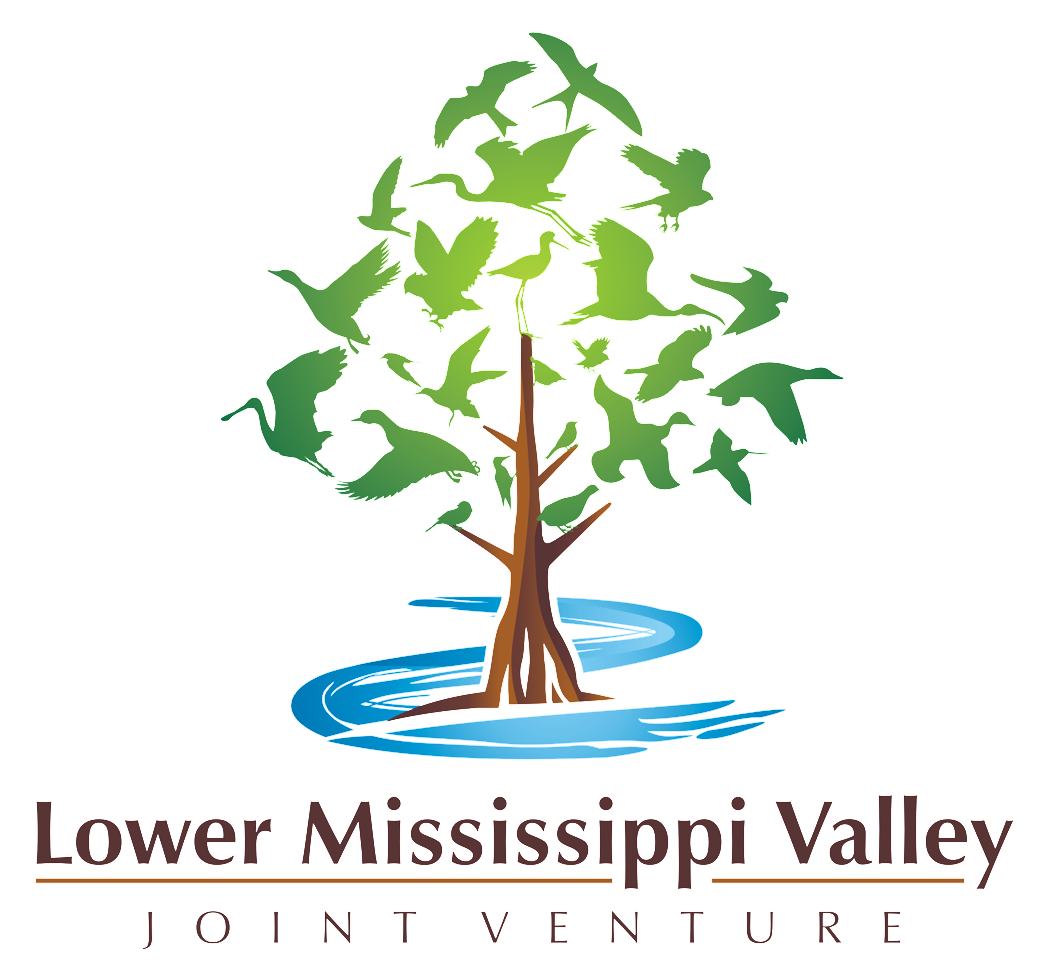Louisiana Watershrush Fellowship for Grad Students
The LMVJV has an opportunity, through the USFWS Directorate Fellows Program (DFP), to advance our biological foundation for bird conservation through a DFP Internship during Spring/Summer 2021. Well qualified graduate students are encouraged to apply. The successful applicant for this Fellowship will work directly with the staff and partners of the LMVJV to develop a robust habitat suitability index model for Louisiana Waterthrush, which will be used to focus and guide conservation resources within the region. Please note that the application, hiring, and employment process are all handled by one of three Program Partners (see details below or download description). Application deadline is 15 January 2021. A brief description of our project is as follows:
Louisiana Waterthrush by Alan Schmierer
Louisiana Waterthrush Project Description: This project offers the opportunity to significantly advance conservation capability on riparian and adjacent habitats in the southeastern U.S. This project is centered on the West Gulf Coastal Plain/Ouachita Bird Conservation Region (WGCPO) of Arkansas, Louisiana, Oklahoma, and Texas, through collaboration with the Lower Mississippi Valley Joint Venture partnership. The Fellow will gather and synthesize existing information (from primary literature and conservation partners) to produce a geospatial habitat suitability model for Louisiana Waterthrush (Parkesia motacilla) in the WGCPO and adjacent geographies. Louisiana Waterthrush is a USFWS Bird of Conservation Concern and a species of Greatest Conservation Need across several southeastern states. The riparian habitats inhabited by Louisiana Waterthrush contribute disproportionately to watershed health and provide important habitats for numerous terrestrial and aquatic endangered, threatened, and at-risk species. Because these habitats are situated at the nexus of terrestrial and aquatic systems, the Fellow will be instrumental in greatly advancing our ability to truly and more efficiently connect lands and waters of the southeastern U.S. Specifically, the Fellow will produce an annotated Literature Review, Summary of Key Louisiana Waterthrush Habitat Quality Variables, Conceptual Model (diagrammatic) of Louisiana Waterthrush Habitat Quality Drivers, and GIS Quantitative Model, through collaboration and mentorship of Lower Mississippi Valley Joint Venture Office and Partner staff. This project offers the opportunity for networking with many conservation scientists across the Southeast, application of critical thinking skills to ecological processes and outcomes, practical exposure to GIS analytical and mapping applications, meaningful communication with conservation leaders and administrators, and contribution to practical, actionable conservation delivery decision-making.
Minimum Education Level and Major Requirement: Graduate Student in Biological Sciences (Natural Resources Management, Biology, Wildlife Conservation, Fisheries, Zoology, Environmental Science, Ecology, Land Management, Forestry, Invasive Species management) with exposure to principles of Conservation Biology, Ornithology, and Geographic Information Systems
[Note that there are multiple Fellowship opportunities sponsored within the southeastern U.S., and beyond. See Program Partner websites for additional internship opportunities.]
__________________________________________
DFP & Application Details
The application period for the U.S. Fish & Wildlife Service (FWS) 2021 Directorate Fellows Program (DFP) is now open thru January 15th, 2021. (Applications will be accepted on a rolling basis, and the application period may close before the deadline if a sufficient number of eligible applications are received. Applicants are encouraged to apply early to ensure consideration.)
What is the Directorate Fellows Program (DFP)?
DFP is a Direct Hire Authority program that includes an 11-week fellowship project for current students at the rising senior undergraduate or graduate school level. The 11-week fellowship begins in mid-May/mid-June of 2021 and ends in August/September of 2021. Upon successful completion of the Fellowship program, along with degree conferral, participants may be directly appointed without competition to full-time, permanent positions. Most projects are a good fit for students with majors in biological sciences and natural resources. There are a limited number of projects that could be a good fit for other degree majors. Refer to the attached DFP flyer for more detailed information on the DFP program, the eligibility requirements, and application procedures.
How to Apply:
FWS is collaborating with the American Conservation Experience (ACE), the Hispanic Access Foundation (HAF), and the Thurgood Marshall College Fund (TMCF) nonprofit organizations this year to assist with the recruitment and administration of over 100 fellowship opportunities, nationwide. Each partner organization is administering a specific number of projects based on geographic location. Students should apply with multiple partners to ensure they have the opportunity to apply for all available projects of interest.
There is a 2-step application process:
Step 1. Students apply to qualify for the program requirements via a partner site. (At a minimum, students must have at least a 3.0 GPA, be a current undergraduate junior, senior, or graduate student and complete degree graduation requirements after the 11-week fellowship (i.e., after September 22, 2021).
Go to the American Conservation Experience (ACE) website to apply for eligibility and projects administered by ACE. Access to project information will be provided in the future.
Go to the Hispanic Access Foundation (HAF) website to apply for eligibility and projects administered by HAF. Access to project information will be provided in the future.
Go to the Thurgood Marshall College Fund (TMCF) website to apply for eligibility and projects administered by TMCF. Access to project information will be provided in the future. (Application through TMCF is only available to students who attend an Historically Black College or University (HBCU)).
NOTE: Students should apply with multiple partners to be able to view all project opportunities when they become available.
Step 2. After qualifying for the program with each partner, when the specific project descriptions are posted, students will be notified to log back into their application to select the specific projects/locations of interest. Project descriptions will be posted no later than the first week in December.
QUESTIONS: Students who have questions about the DFP program and the application process should reach out to the DFP point of contact listed on each partner website page for assistance.

